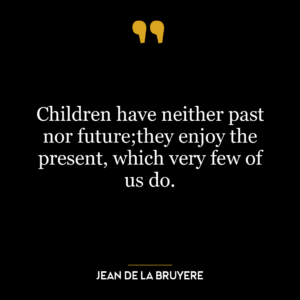This quote implies that beauty is not solely dependent on inherent characteristics, but also on care and attention. A baby is often considered a symbol of pure beauty and innocence. However, even something inherently beautiful, like a baby, can lose its appeal if not well cared for – in this case, being soiled and having a neglected nose.
Twain is using humor and hyperbole to emphasize the importance of maintenance and care in preserving and enhancing beauty. It suggests that beauty is not a static quality but something that requires effort and attention to maintain.
In the context of today’s world, this quote can be applied in various ways. In terms of personal development, it emphasizes the importance of self-care and personal hygiene. No matter how talented, intelligent, or inherently ‘beautiful’ we are, neglecting our physical and mental wellbeing can diminish our appeal. It underscores the idea that we must invest time and effort into maintaining and improving ourselves.
In a broader societal context, this quote could also be interpreted as a commentary on the environment or public spaces. Even the most beautiful park or building can become unattractive if not properly maintained. It highlights the importance of regular care and maintenance in preserving the beauty and functionality of our surroundings.
The quote can also be applied to relationships. A relationship, no matter how strong or beautiful at the onset, can become ‘soiled’ if neglected. Regular care, attention, and maintenance are crucial in preserving the beauty and health of relationships.
In essence, the quote serves as a reminder that beauty, in any form, is not merely a product of inherent qualities but also of consistent care and attention.










